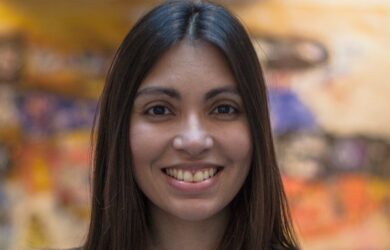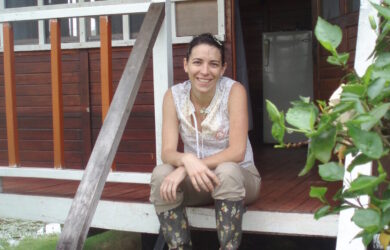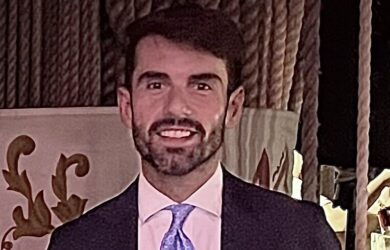
Michelle Teplensky wins a prestigious prize for her research on a smart system for releasing type-2 diabetes drugs to patients over the long term so that they no longer damage their health if they miss a dose.
A Gates Cambridge Scholar has won a prestigious prize for her research on a smart system for releasing type-2 diabetes drugs to patients over the long term so that they no longer damage their health if they miss a dose.
Michelle Teplensky [2014] won the $500 National Student Paper Competition for the American Institute of Chemical Engineers. The prize was announced at their Annual Student Meeting in Atlanta, Georgia, in November. The competition entails students giving an oral presentation of data from their research.
Participants first had to win a regional conference in their area. The AIChE says participation offers “valuable, real-world experience for students”. Michelle’s presentation was based on research on type-2 diabetes she conducted in the Langer/Anderson Lab at MIT in her final year as an undergraduate. Type-2 diabetes is characterised by insulin-resistance, hyperglycemia and dysfunctional insulin hormone signalling and accounts for 90-95% of all total cases of diabetes. The total population affected is expected to reach 4.4% worldwide in 2030.
Current treatment of type-2 diabetes involves a drug regimen using small molecule pharmaceutics that act on biological pathways to regulate glycemic control. These drugs modulate glucose metabolism, insulin secretion and/or insulin sensitivity. Patients who have the best outcome are those who follow the drug regimen to the letter. Those who are more erratic have worse outcomes.
Michelle, who is doing a PhD in Chemical Engineering, says controlled drug delivery could reduce dependence on patient compliance and enable more autonomous therapies. It is thought that drug delivery from polymeric biodegradable constructs or stimuli-response “smart” gels could provide a basis for self-regulated systems and Michelle’s work focused on how glucose acts as an important trigger in the design of polymeric drug delivery systems for type-2 diabetes.
She says: “In our research, we have developed several drug-delivery formulations that provide long-term temporal control over drug release. These efforts have resulted in the successful encapsulation of type-2 diabetes drugs, and control over their release kinetics over a period of days.”
Further efforts to make autonomous therapies will continue to investigate tighter control over glucose-responsive polymeric constructs, with the eventual goal of developing smart glucose-sensing technology for on-demand drug delivery that responds in real time to patient glucose levels. Preliminary efforts have also explored the use of these particles to control blood glucose levels in an animal model of type-2 diabetes. Michelle adds: “It is our hope that, through this work, the efficacy of type-2 diabetes drug therapy will be improved through smarter design of materials-based therapies. The success of the research would not have been possible without the guidance of my mentors – specifically Dr Matthew Webber and Dr Benjamin Tang – as well as the entire Langer/Anderson Lab. It was an honour to be presenting this research at the national level alongside talented peers and I am incredibly grateful to AIChE, the co-chairs of the competition Dr Douglas Ludlow and Dr William Pitt, and the judges who all devoted their time for their selection of me as the winner.”
Picture credit: “Sugar 2xmacro” by Lauri Andler(Phantom) – Photo taken by user. Licensed under Creative Commons Attribution-Share Alike 3.0 via Wikimedia Commons.












